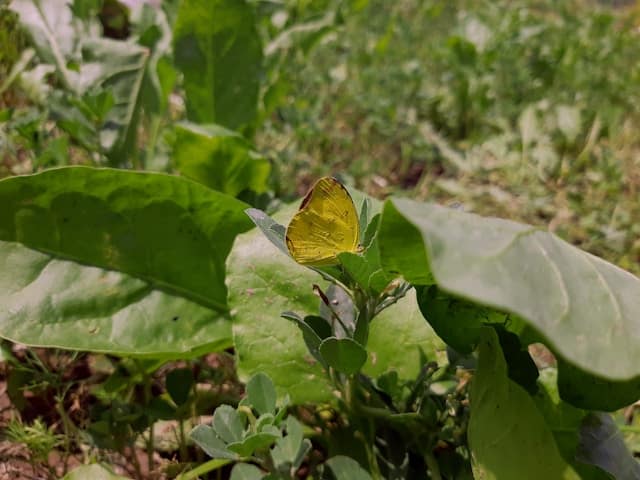In the realm of agriculture, data-driven technologies have been revolutionizing the industry, helping farmers to optimize their operations, manage their resources more efficiently, and ultimately boost their crop yields. One of the most impactful advancements in this field is the integration of artificial intelligence (AI) and predictive analytics into farming practices, a technological pairing that holds immense potential in preventing plant diseases before they even strike. AI-powered predictive analytics combines machine learning algorithms, data analysis, and predictive modeling to forecast the likelihood of specific outcomes or events. In the following exploration, we will delve into how this innovative technology can be harnessed in the world of agriculture to detect and prevent plant diseases.
Precision Agriculture and Predictive Analytics
Precision agriculture refers to the application of modern technologies and systems to the management and optimization of farming operations. This approach emphasizes the use of data for decision-making, enabling farmers to make more informed choices about crop management, soil treatment, and disease control.
In the same genre : What Role Does Nanotechnology Play in Enhancing Food Packaging Safety?
Central to precision agriculture is the concept of predictive analytics. Predictive analytics is a form of advanced analytics that utilizes data, statistical algorithms, and machine learning techniques to identify future outcomes based on historical data. When partnered with AI, predictive analytics becomes a powerful tool that can foresee plant diseases before they become detrimental to crops.
Farmers can use AI-powered predictive analytics to monitor their crops and detect early signs of disease. This is achieved by analyzing vast amounts of data from various sources such as weather forecasts, satellite images, and soil sensors. The AI system then processes this information to predict the likelihood of disease occurrence, giving farmers ample time to address potential threats.
Also read : How Can Smart Luggage Systems Improve Security and Efficiency in Air Travel?
Detection and Management of Crop Diseases
The early detection of crop diseases is crucial in the agricultural industry. Timely detection allows for the implementation of disease management strategies, which can significantly reduce crop losses and save farmers considerable resources.
AI-powered predictive analytics systems are uniquely capable of providing this early detection. The system can process and analyze huge volumes of data, such as temperature, humidity, rainfall, and plant health indicators, to forecast potential disease outbreaks.
Moreover, these systems can learn from their own predictions. Through machine learning, AI systems continually refine their forecasting models based on new data inputs. This means their predictions become increasingly accurate over time, allowing for even more effective disease management.
Monitoring and Learning from Soil Health
Soil health is a critical factor in the prevention of plant diseases. Unhealthy or imbalanced soil can create conditions conducive to disease, whereas healthy, balanced soil can help to prevent disease and promote robust plant growth.
AI-powered predictive analytics can help farmers monitor soil health in real time. Sensing technologies can collect data on soil parameters such as moisture content, nutrient levels, and pH. This data is then analyzed by the AI system, which can predict how these soil conditions may impact plant health and the likelihood of disease.
Moreover, the AI system can learn from this data over time. Through machine learning, the system can identify patterns and trends in soil health that are linked to disease outbreaks. This information can then be used to predict future risk of disease and guide farmers in their soil management practices.
The Future of Agricultural Technologies
The future of agricultural technologies is shaping up to be one where AI and predictive analytics play a central role. These systems have the potential to transform the way farmers detect, manage, and prevent plant diseases, leading to more efficient farming practices, higher crop yields, and healthier soil.
While the use of AI-powered predictive analytics in agriculture is still relatively new, the technology is evolving quickly. Advances in machine learning and data analysis are continually improving the accuracy and predictive power of these systems. As a result, farmers can expect access to increasingly sophisticated disease detection and management tools in the coming years.
In conclusion, AI-powered predictive analytics holds immense potential in the fight against plant diseases in agriculture. By utilizing data, machine learning, and predictive modeling, these systems can help farmers predict disease risk, manage disease outbreaks, and maintain soil health. With continued technological advancements, this innovative approach promises to become a cornerstone of modern farming practices.
AI and Computer Vision: The Game Changer
The power of artificial intelligence extends beyond data analysis and predictive modelling. One key area where AI has shown significant potential in agriculture is through the use of computer vision. Computer vision refers to the capability of machines to ‘see’ and interpret visual data, much like the human eye but with far greater precision and consistency.
In the context of agriculture, computer vision can be harnessed for crop monitoring. High-resolution cameras, often mounted on drones, can capture detailed images of fields. These images are then processed through AI algorithms to detect signs of plant diseases.
The real game-changer lies in real-time disease detection. Instead of waiting for data to be manually collected and analysed, AI systems can instantly identify potential issues from the images taken. This allows for immediate action to be taken, further reducing the risk of widespread disease outbreak.
Deep learning, a subset of machine learning, plays a crucial role in improving the accuracy of computer vision. It involves training AI systems using large amounts of labelled data, enabling them to recognise patterns and make accurate predictions. Over time, deep learning systems can self-improve, refining their ability to detect plant diseases from visual data.
The integration of computer vision with other data-driven technologies also offers promising possibilities. For example, merging image data with weather patterns can provide comprehensive insights into crop health. This approach can further enhance the effectiveness of predictive analytics, enabling farmers to make more informed decisions about disease management.
Impact on Supply Chain and Future Prospects
AI-powered predictive analytics doesn’t just impact the day-to-day farming practices; it has far-reaching implications for the entire agricultural supply chain. The ability to predict plant diseases in advance can ensure consistent and high-quality crop yields, stabilizing the supply of produce. This stability can lead to more efficient planning, reduced waste, and improved profitability across the supply chain.
Moreover, the power of predictive analytics extends beyond disease detection to other aspects of precision farming. It can assist in forecasting weather conditions, predicting crop yields, and optimizing resource use, among other applications. All these factors contribute to more sustainable and productive farming practices.
As AI technology continues to evolve and becomes more integrated into precision agriculture, the future for the industry looks promising. Advancements in deep learning and data analysis will further enhance the predictive power of these systems, providing farmers with increasingly sophisticated tools for disease prevention and overall farm management.
In conclusion, the integration of AI-powered predictive analytics into agriculture is revolutionizing the industry. It provides a data-driven approach to disease detection and prevention, allowing farmers to make informed decisions in real time. The potential of AI in agriculture extends beyond plant disease management, impacting the entire supply chain and paving the way for more efficient and sustainable farming practices. It’s an exciting time for the industry, as we witness the dawn of a new era of precision farming powered by AI.






